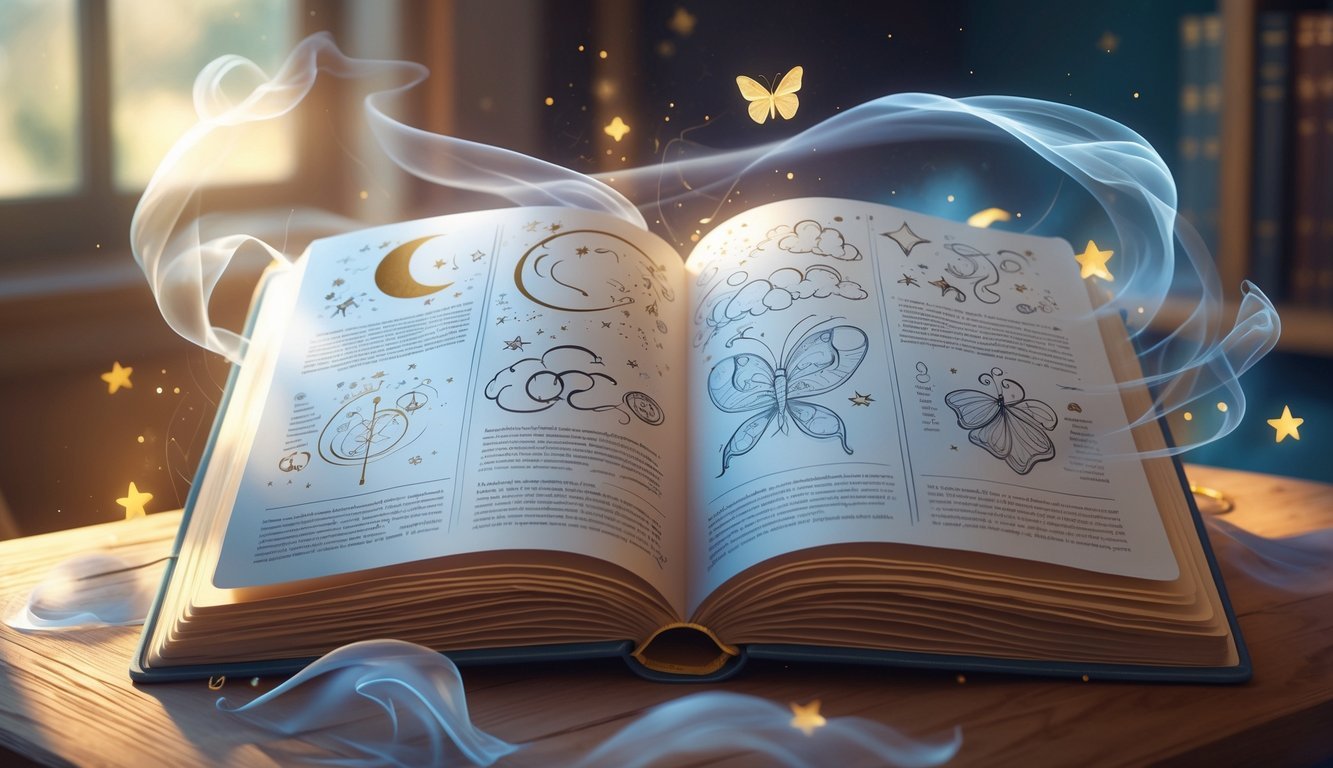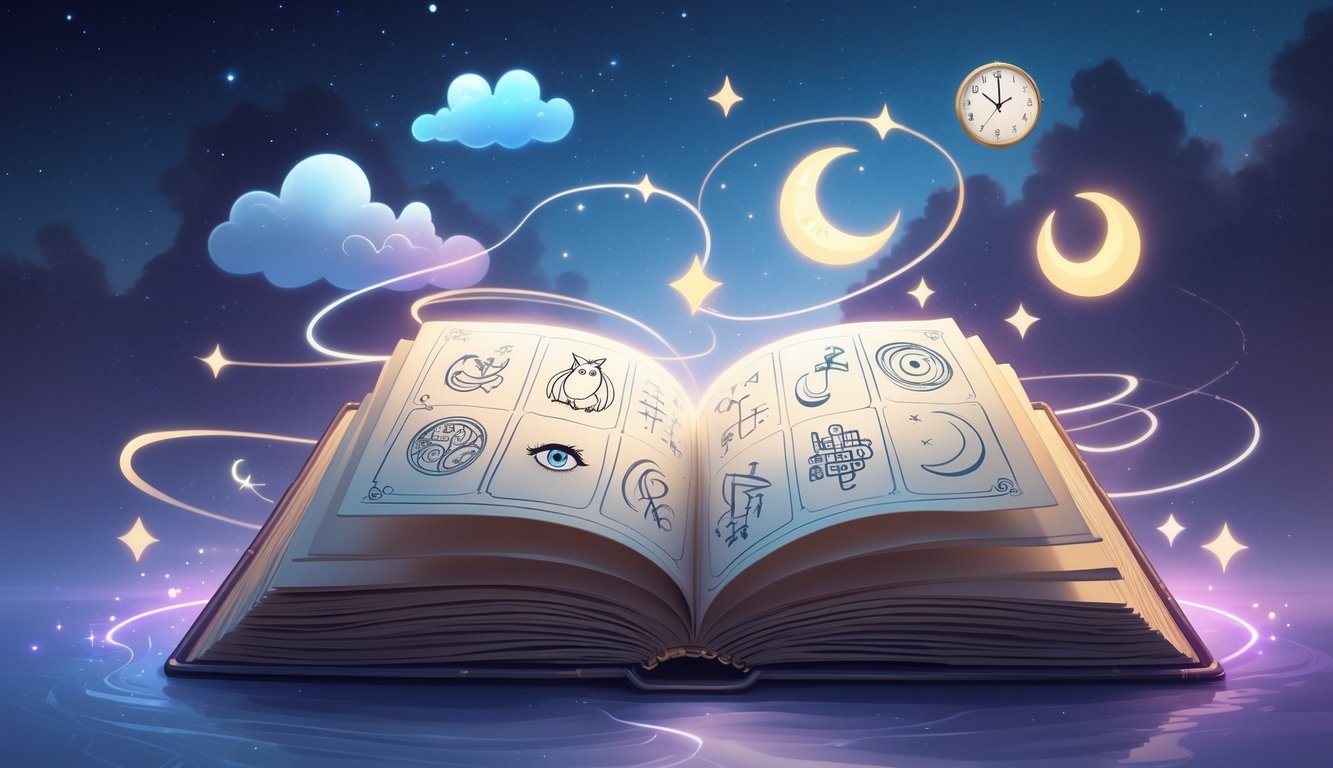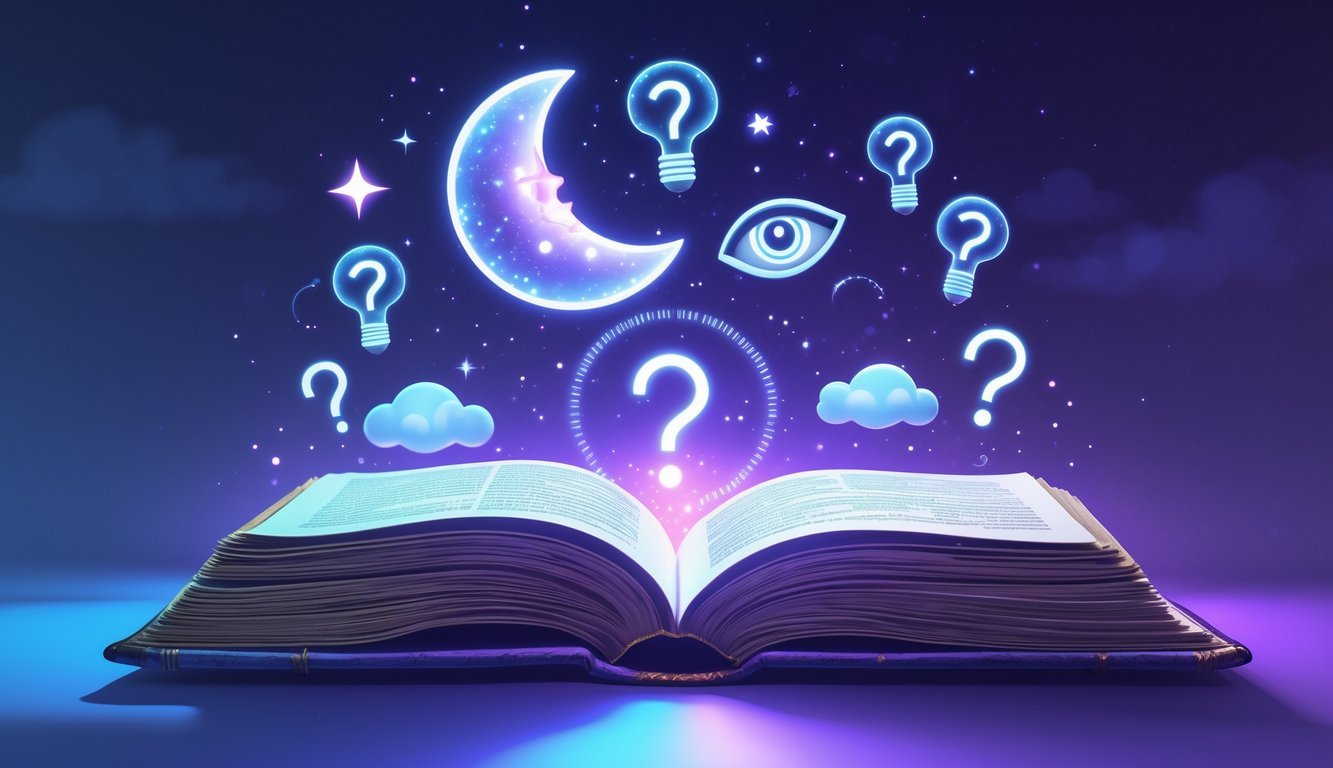PsychNewsDaily Publishers
100 Summit Drive
Burlington, MA, 01803
Telephone: (320) 349-2484
PsychNewsDaily Publishers
100 Summit Drive
Burlington, MA, 01803
Telephone: (320) 349-2484
A dream dictionary helps interpret dream symbols, linking them to emotions and memories, facilitating self-reflection and personal insight through understanding unconscious thoughts.

A dream dictionary gives you a way to dig into the hidden meanings behind the things you see in your sleep. It links the patterns in your dreams to memories, feelings, and ideas from your own mind, so you get a peek at what your dreams might actually mean.
If you look up common symbols, you can start to figure out your dreams and learn more about your thoughts and emotions.
Dream dictionaries usually list popular dream symbols in a simple format. This makes it easier for you to find answers about your dreams.
Whether you dream about animals, places, or random objects, these guides help you translate what they might mean in your everyday life. That way, your dreams can turn into a handy tool for self-reflection or even creativity.

A dream dictionary lets you break down the symbols and images that pop up in your dreams. It explains what those symbols could mean.
These meanings connect to your feelings, your past, or even thoughts you might not realize you have.
A dream dictionary is basically a tool that lists common dream symbols and their possible meanings. If you look up a symbol like water or flying, the dictionary gives you some explanations that tie back to your emotions or what’s happening in your life.
Its main purpose is to help you with dream interpretation. Dreams use a kind of language that’s all images instead of words, which can get confusing.
The dictionary works like a translator for this language of dreams, giving you clues about what your unconscious mind wants to say.
People have used dream dictionaries for ages. Ancient cultures wrote down what different dream symbols meant to help explain things in their lives.
As time went on, new ideas from psychology changed how people understood dreams. Now, dream dictionaries mix old beliefs with what we know about the mind today.
You can find tons of dream dictionaries online or in apps, so it’s pretty easy to look up the meaning of almost any symbol.
Dream dictionaries link dream symbols to certain meanings based on culture, psychology, or just shared human experience. When you see a symbol in your dream, the dictionary gives you a few possible interpretations, not just one.
You get to pick the meaning that makes the most sense for you and your life. This helps you figure out the imagery your mind uses while you sleep.
Using a dream dictionary kind of feels like having a map to explore the weird messages your brain sends you at night.

Dream symbols usually come from your memories, feelings, or stuff you notice in real life. You might dream about animals, numbers, random people, or places like castles.
If you can figure out what these symbols mean, you’ll get more insight into your thoughts and emotions. There are different tools and ideas you can try to make sense of what your dreams are telling you.
Some symbols show up in a lot of people’s dreams, like falling, animals, or children. Falling might mean you feel out of control or anxious about something.
Animals can stand for parts of your body, spirit, or even your personality. For instance, a bird could mean freedom.
Numbers sometimes have special meanings from your own life or culture. Places like castles might stand for power or feeling safe.
Recurring symbols, like a cane or a cap, could relate to your health or how you see yourself. Characters in dreams usually reflect your personal relationships or different sides of who you are.
Nightmares often signal stress or unresolved fears. Each symbol ties back to your feelings and your unconscious mind.
A dream dictionary can help you figure out what the symbols in your dreams mean. These dictionaries list common meanings for a bunch of images you might see at night.
You can look up animals, numbers, or random objects to get possible interpretations. But honestly, you should also think about what each symbol means to you.
For example, a castle might feel safe to you but scary to someone else. A dream dictionary gives you ideas, but your own feelings really shape the meaning.
If you combine what you find in a dictionary with your own thoughts, your dream interpretation gets a lot clearer.
Psychologists like Sigmund Freud and Carl Jung spent years studying dreams to understand the unconscious mind. Freud thought dreams showed wish fulfillment, so they reveal what you want deep down.
Jung believed dreams help you discover yourself by using symbols from your personal life and what he called the collective unconscious.
Dreams can reflect your stress, fears, or hopes. If you keep having the same dream, it probably means there’s an issue you need to work out.
Looking at dreams through these theories helps you see how your mind deals with emotions and what’s going on in your life—even while you’re asleep.
Write down your dreams as soon as you wake up. Otherwise, the details fade fast.
Note the symbols, feelings, people, and any recurring themes you remember. If you keep a dream journal regularly, you’ll start to see patterns or changes over time.
You might notice connections between your dreams and stuff happening in real life. This can help you figure out what your unconscious mind is trying to say.
It helps to keep your journal by your bed with a pen ready to go, just in case you wake up with something fresh.

Dream symbols might have common meanings, but your personal feelings can totally change what they mean. A dream dictionary gives you ideas and possible meanings for the images you see at night.
Some symbols, like water, may represent emotions. Flying can mean freedom or escape.
Common symbols often have general meanings, but they can shift depending on what’s happening in your life.
Look up the main images or feelings from your dream in the dictionary. Then, think about how those meanings fit with what’s been going on in your day-to-day life.
You’ll find big dream dictionaries online that cover thousands of symbols and ideas. Some even have forums or discussions if you want more help.
Yes, there are plenty of free dream dictionaries out there. Most of them include lots of words and meanings, so you can get help without paying anything.
Try breaking the dream into smaller parts or key images. You can also ask experts or check out online forums where people talk about different dream ideas.
Dream dictionaries can give you some clues about your feelings and thoughts, but they won’t hand you exact answers. Sometimes, they help you notice things about yourself you might’ve missed.